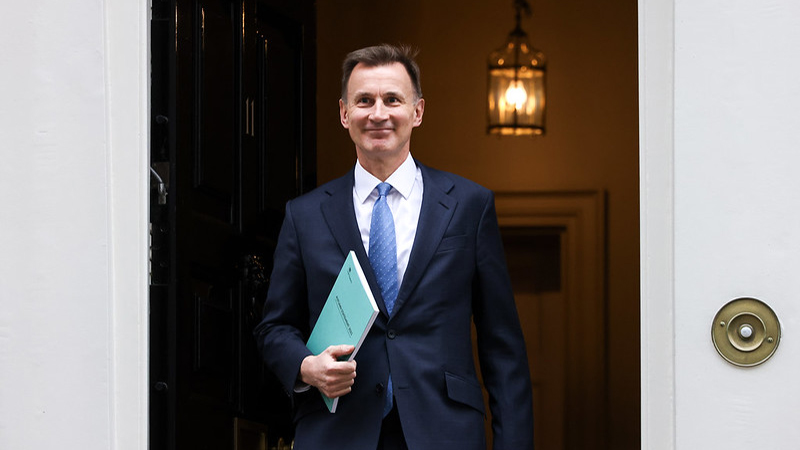Chancellor of the Exchequer Jeremy Hunt has announced that the employee national insurance rate will be cut to 10% from 12%, with the legislation being pushed forward on 6 January as opposed to the start of the new tax year in April.
Addressing the House of Commons today (22 November), Hunt said: “I would normally bring in a measure like this for the start of the new tax year in April, but instead tomorrow I’m introducing urgent legislation to bring it in from 6 January, so that people can see the benefit in their payslips at the start of the new year.”
According to Treasury figures, 27 million people will benefit from the cut, with those on a £35,000 annual salary saving approximately £450 per year. The Chancellor said the average nurse will save £520 per annum, while the average police officer will see savings of £630 per year.
According to the Office for Budget Responsibility (OBR), reducing the NI tax could lead to 94,000 more full-time employees in the UK.
As it stands, Class 1 UK citizens (those employed by a business) currently pay 12% if their earnings are between £242 and £967 per week. Some 2% of earnings are paid on earnings of more than £927 per week.
For those who are self employed, workers who reside in the Class 2 tax bracket will see National Insurance scrapped altogether. They currently pay a fixed weekly amount of £3.45 per week.
For those in Class 4, who currently pay 9% on profits between £12,570 and £50,270 – and 2% on profits above this – their NI will be cut by one percentage point to 8%. The Chancellor told the House the combined Class 2 and 4 reforms will save the UK’s 2 million self-employed citizens £350 per year. These changes are set to take effect in April next year.
Measures ‘won’t counteract the tax burden’
Sian Steele, Evelyn Partners’ head of tax, said that while more take-home pay will be “very welcome” to millions of workers, the NI reductions “will do little to counteract the rising tide of direct taxation that has taken the overall tax burden to the highest levels in 70 years”.
“To put it into perspective, the freeze policy on tax thresholds that has been in place since 2021 – as well as the cut to the additional rate threshold to £125,140 in April 2023 – will be earning £29.3bn a year for the Treasury by 2027-28. That is equivalent to a 4p increase in the basic rate of income tax,” she explained.
“That substantial shift in the tax landscape is driven largely by the fiscal drag effect as the incomes of millions of people surge across the personal allowance and the higher and additional rate thresholds – so that people start to pay tax for the first time, or are drawn into paying tax at higher marginal rates.”
She added that Hunt favoured an NI tax cut over an income tax cut for “various probable reasons”, with the former focused specifically on work while income tax applies to other sources of income, too.
“An NI cut can be presented as an incentive and a reward to workers, while also having the benefit of being cheaper for the Treasury”, she pointed out.
“You do not pay NI on any private pension income or at all after state pension age, so that most retirees will not benefit from this cut – and so it can perhaps deflect some criticism from any perceived inter-generational “unfairness” of hiking the state pension by a hefty amount under the triple lock.”
Clare Moffat, pensions and tax expert at Royal London, concurred with Steele that “any saving is a good one”. However, she argued that keeping Personal Allowances and income tax thresholds frozen means “some will end up paying tax when they weren’t before”.
“While our research shows that the average household is paying nearly £500 a month more on household bills and food costs this year, a cut of 2% is a drop in the ocean. Any National Insurance reduction will only help those who are working and those under State Pension age.”
Charles Hepworth, investment director at GAM Investments, said: “The National Insurance rate cut from 12% to 10% for employees represents the biggest tax effect for individuals in today’s statement. While it may be popular among some, this is unlikely to be viewed favourably by inflation hawks – most notably Bank of England Governor Bailey.”







